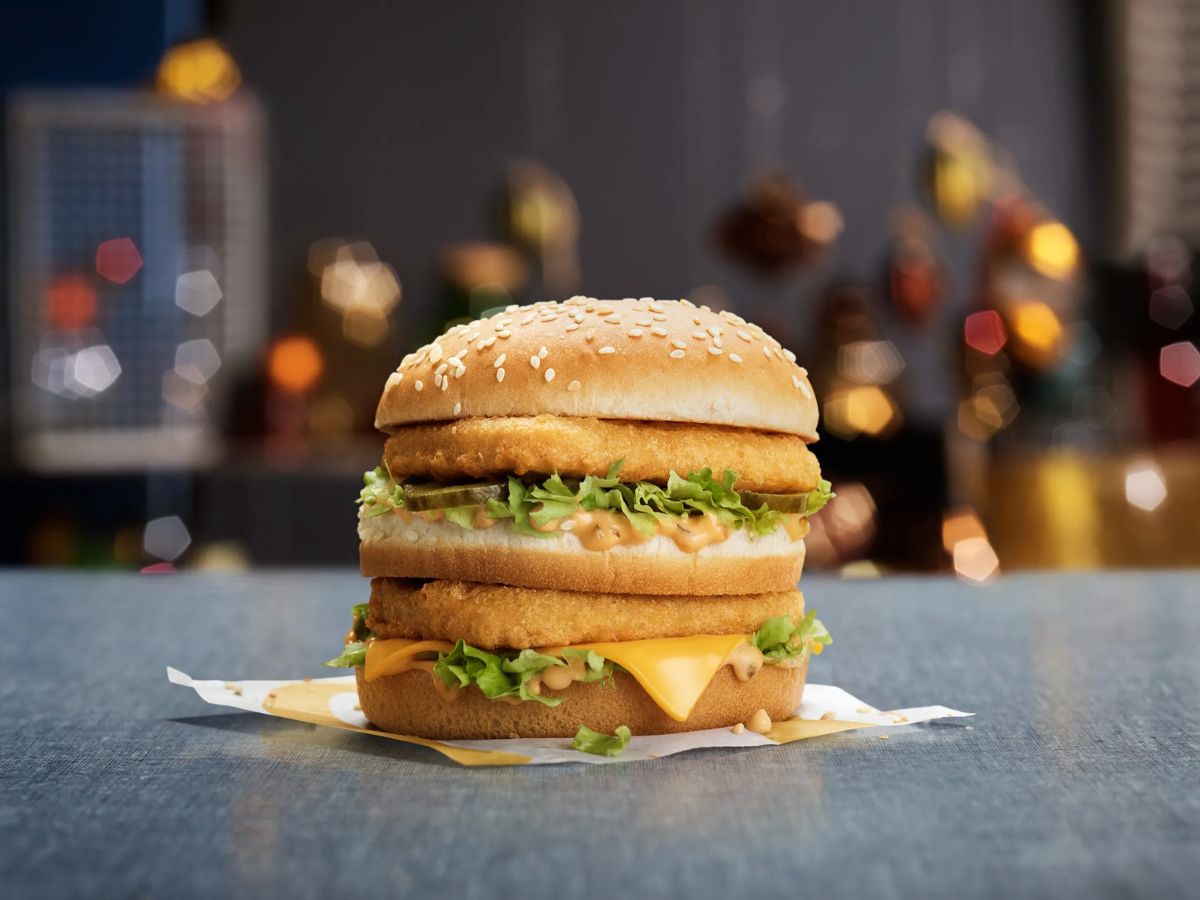
Ever wondered what makes the Big Mac such a popular choice at McDonald's? This iconic burger has been a staple since its debut in 1967. But what about its nutritional content? Is the Big Mac healthy? No, the Big Mac is not considered healthy due to its high calorie, fat, and sodium content. However, understanding its nutritional facts can help you make informed choices. From calories to protein, we'll break down everything you need to know. Whether you're a fan or just curious, these facts will give you a clearer picture of what you're consuming. Ready to dive in? Let's get started!
The Big Mac: An Iconic Burger
The Big Mac is one of the most famous burgers in the world. Known for its unique taste and double-decker structure, it has been a staple at McDonald's since its introduction in 1967. Let's dive into some fascinating nutrition facts about this iconic burger.
-
Calories: A Big Mac contains 550 calories. This makes it a substantial meal for those counting their daily intake.
-
Protein: Each Big Mac has 25 grams of protein, which is essential for muscle repair and growth.
-
Fat: The burger contains 30 grams of fat. This includes 10 grams of saturated fat, which should be consumed in moderation.
-
Carbohydrates: There are 45 grams of carbohydrates in a Big Mac, providing a quick source of energy.
-
Fiber: With 3 grams of dietary fiber, the Big Mac helps in digestion and maintaining a healthy gut.
Ingredients Breakdown
Understanding what goes into a Big Mac can help you make informed dietary choices. Here are some key ingredients and their nutritional impact.
-
Beef Patties: Two all-beef patties contribute to the protein and fat content of the burger.
-
Special Sauce: The Big Mac's special sauce adds flavor but also includes sugars and fats.
-
Lettuce: Fresh lettuce adds a bit of crunch and a small amount of vitamins and minerals.
-
Cheese: A slice of American cheese adds calcium but also increases the fat content.
-
Pickles: Pickles add a tangy flavor and are low in calories.
-
Onions: Chopped onions provide a bit of spice and are low in calories.
-
Sesame Seed Bun: The bun contributes to the carbohydrate content and includes some fiber.
Nutritional Comparisons
How does the Big Mac stack up against other fast-food options? Let's compare.
-
Whopper: A Burger King Whopper has 657 calories, more than a Big Mac.
-
Quarter Pounder: McDonald's Quarter Pounder has 520 calories, slightly less than a Big Mac.
-
Chicken Sandwich: A McDonald's McChicken has 400 calories, making it a lighter option.
Health Considerations
While the Big Mac is delicious, it's important to consider its health implications.
-
Sodium: The Big Mac contains 970 milligrams of sodium, which is about 40% of the recommended daily intake.
-
Cholesterol: With 80 milligrams of cholesterol, it contributes to heart health concerns if consumed frequently.
-
Sugars: There are 9 grams of sugars in a Big Mac, mostly from the sauce and bun.
-
Trans Fats: The burger contains 1.5 grams of trans fats, which are harmful to heart health.
Nutritional Benefits
Despite its high calorie and fat content, the Big Mac does offer some nutritional benefits.
-
Iron: The beef patties provide a good source of iron, essential for blood health.
-
Calcium: The cheese adds calcium, important for bone health.
-
Vitamin A: Lettuce and onions contribute small amounts of Vitamin A, good for vision and immune function.
-
Vitamin C: Onions also provide Vitamin C, which is important for skin health and immunity.
Customizing Your Big Mac
You can make your Big Mac healthier by customizing it. Here are some tips.
-
No Cheese: Removing the cheese can save you about 50 calories and reduce fat.
-
Extra Lettuce: Adding more lettuce increases fiber and vitamins without adding many calories.
-
No Sauce: Skipping the special sauce can cut down on sugars and fats.
-
Whole Wheat Bun: If available, opting for a whole wheat bun can add more fiber.
Fun Facts
Let's end with some fun trivia about the Big Mac.
-
Creation: The Big Mac was created by Jim Delligatti, a McDonald's franchisee in Pennsylvania.
-
Global Reach: The Big Mac is available in over 100 countries worldwide.
-
Big Mac Index: The Economist uses the Big Mac to compare the purchasing power of different countries.
-
Big Mac Sauce: The recipe for the special sauce was a closely guarded secret for many years.
Final Bite of Big Mac Facts
Big Macs pack a punch in both flavor and nutrition. With 550 calories, 25 grams of fat, and 45 grams of carbs, it's clear why they're a guilty pleasure. But did you know they also have 25 grams of protein? That’s a decent boost for muscle recovery. Sodium levels are high, though, at 970 milligrams, so watch your intake if you're salt-sensitive. The iconic sandwich also contains 9 grams of sugar, mostly from the special sauce. While it’s not the healthiest option, enjoying one occasionally won’t derail your diet. Balance it out with healthier choices throughout the day. Remember, moderation is key. Next time you bite into a Big Mac, you'll know exactly what you're getting. Enjoy responsibly!
Was this page helpful?
Our commitment to delivering trustworthy and engaging content is at the heart of what we do. Each fact on our site is contributed by real users like you, bringing a wealth of diverse insights and information. To ensure the highest standards of accuracy and reliability, our dedicated editors meticulously review each submission. This process guarantees that the facts we share are not only fascinating but also credible. Trust in our commitment to quality and authenticity as you explore and learn with us.


